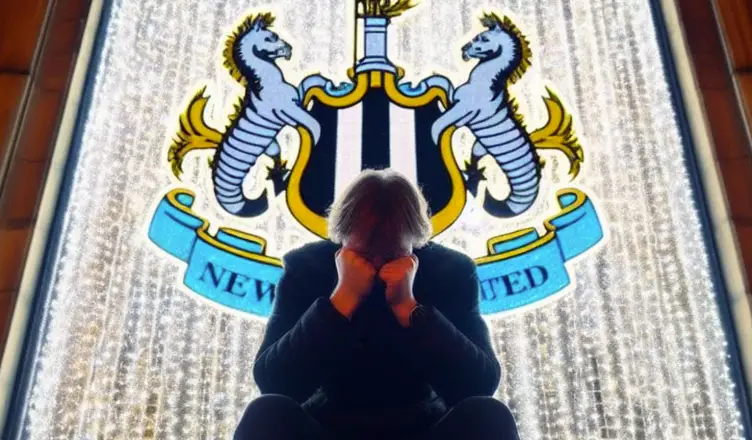Football and mental health are two topics that generally don’t go hand-in-hand.
The first footballer I really remember speaking out about his mental health was ex-goalkeeper Chris Kirkland. I remember reading the story as I waited for the metro home from work one day.
The fact I can remember where I was when reading his brilliant and impassioned interview shows just how groundbreaking it was. And it was only in 2017, six short years ago.
Yesterday was World Mental Health Day, and as usual, Twitter was filled with heartfelt anecdotes, encouragement from mental health charities to open up and some standard thoughtless plaudits from every business you can imagine. But on the football side of Twitter, it felt different.
I saw two of my personal heroes, Sean Longstaff and Dan Burn, not only talk about mental health but talk about their own experiences of it. Every time I think I can no longer be surprised at someone struggling with their mental health, I’m floored again.
Of course, we don’t know these two lads personally, but they seem like two of the brightest, bubbliest and yes, happiest, members of the squad. They’re living all of our dreams and still, they’ve experienced mental health difficulties. If this doesn’t make detractors realise that mental health doesn’t discriminate, I don’t know what will.
It hits home even harder when you see two people you have such a strong parasocial relationship with talk about their struggles openly. We feel like we know them, even though we consider them gods (or is that just me?). I felt like they were personally talking to me when watching their interviews. It was emotional.
Elsewhere, Norwich City released one of the most powerful mental health awareness campaigns I and many others (notably Roman Kemp) have ever seen. I implore you to watch it before you continue reading on (spoilers below).
For the first minute or so, I didn’t know how to feel about this; the man on the left felt like a very stereotypical portrayal of depression. Emotionless. Quiet. Unexcitable. Very Steve McDonald on Coronation Street. At first, it felt well-intentioned, but like it might miss the mark. Then the ending, which revealed he wasn’t the focus of the video, blew me away. I’ve barely stopped experiencing goosebumps since I watched it earlier today.
Herein lies the power of football. It brings people together in a way that so few other things can. My life revolves around football and matchdays. It’s the biggest element of my social life. I experience every emotion under the sun when watching the football. But when I experienced a bad dip in my mental health recently, it was one of the biggest things that kept me going.
I’ll save the full story for another time, but in short, I’ve been on antidepressants for 12 years; and I’m not ashamed of that. They’re the reason I can function, and I’ve failed on two occasions to come off them – this being one of them. The mirtazapine helps me to sleep, and despite weaning myself off it slowly and carefully, I was hit with a severe bout of insomnia in late August/early September that floored me. A lack of sleep is undoubtedly one of the biggest triggers for my depression and anxiety.
I had an awful period of three weeks where I barely spoke to anyone or went anywhere, aside from the football. In that time, I had a trip to Brighton, and we played at home to Brentford, and I had two amazingly high days in a sea of lows. Truthfully, the international weekend was difficult because my routine had been disrupted and I had no motivation to do anything that wasn’t following the mags.
It helps, of course, that Newcastle United are pretty much mint a lot of the time now – had we still been under the reign of Ashley and Bruce, it might not quite have been the same respite from my own thoughts.
By the time I headed off to Milan, I was mostly over my wobble, and I’ve been on a high pretty much ever since. It’s not to say that football is the only reason my mental health has improved again; I’m back on my antidepressants and I’m sleeping, for the most part. But it’s given it a massive boost along the way.
I’ve always considered myself to be open about my mental health, but this piece has been hard to write. If the conversation is there, I’m happy to engage and open up; but even as vocal as I am about mental health, I hate being the one to start the conversation when it’s about my own mental health. But with every conversation, it becomes easier for someone else.
I’d like to give a massive shoutout to our editor and the writer of most of our NUFC Blog content, Olly, who opened up about his mental health on Twitter yesterday. Speaking publicly can make you feel vulnerable, but it ultimately does so much good.
Football is still dealing with an overwhelming air of machismo. We’re making strides in equality, but there’s still a lingering sense of “man up” in footballing circles. On the pitch, in the stands, at the pub. As such a ubiquitous sport, though, it has the power to change that.
Football made a big step forward in the fight to destigmatise mental health today.







